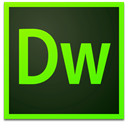Uncovering the Best openElement Alternative for Your Web Development Needs
For many years, openElement has been a go-to choice for web developers seeking a powerful yet intuitive editor to create W3C-compliant HTML/CSS/PHP code. Its promise of faster website creation with a user-friendly interface and free templates made it a popular option. However, as technology evolves and diverse project requirements emerge, users often look for an openElement alternative that offers specialized features, different licensing models, or broader platform support. This article explores top alternatives to openElement, helping you find the perfect fit for your next web project.
Top openElement Alternatives
Whether you're a seasoned professional or just starting your web development journey, this curated list of openElement alternatives offers a range of options, from robust commercial suites to powerful open-source editors. Dive in to discover which tool best aligns with your workflow and creative vision.

Adobe Dreamweaver
Adobe Dreamweaver is a comprehensive commercial tool for building websites and applications, widely used by web designers, developers, and visual designers. Available for Mac and Windows, it offers robust features like WYSIWYG Support, HTML/CSS/JS rendering, visual design capabilities, and support for popular frameworks like Bootstrap. Its integration with Adobe's ecosystem and extensive features make it a strong openElement alternative for professionals.

Pinegrow Web Editor
Pinegrow Web Editor is a commercial desktop web editor compatible with Mac, Windows, and Linux. It excels in building responsive websites with live multi-page editing, CSS & SASS styling, and smart components for Bootstrap, Foundation, and WordPress. Unlike some proprietary builders, Pinegrow works directly with standard HTML and CSS files, making it a flexible openElement alternative that can integrate seamlessly with other web development tools.

Bluefish Editor
Bluefish Editor is a powerful, free, and open-source editor primarily aimed at programmers and web designers. Available on Mac, Windows, and Linux, it provides extensive support for various programming and markup languages, focusing on dynamic and interactive websites. Its features include a PHP IDE and SFTP support, making it an excellent openElement alternative for those who prefer a code-centric, open-source approach.

BlueGriffon
BlueGriffon is a freemium and open-source WYSIWYG content editor for the web, powered by Gecko, Firefox's rendering engine. It adheres to W3C's web standards, supporting HTML 4, XHTML 1.1, HTML 5, XHTML 5, CSS 2.1, and CSS 3. Available for Mac, Windows, and Linux, its strong WYSIWYG capabilities and adherence to web standards make it a compelling openElement alternative for visual web page editing.

Google Web Designer
Google Web Designer is a free program from Google for creating interactive HTML5 ads and other HTML5 content for any device. Available on Mac, Windows, and Linux, it offers a GUI with common design tools and integrates with Google Web Fonts and other Google services. Its focus on HTML5, responsive design, and interactive elements makes it a powerful openElement alternative, especially for rich media content and advertising.

Pingendo
Pingendo is a commercial web builder for Mac, Windows, and Linux that allows users to create quality HTML prototypes quickly using open-source tools like Bootstrap, SASS, and Fontawesome. It features a drag-and-drop interface, in-app code editor, and live preview, requiring no coding for basic prototyping. Its focus on rapid prototyping with popular frameworks makes it an excellent visual openElement alternative.

KompoZer
KompoZer is a complete, free, and open-source web authoring system based on NVU source code, offering both web file management and easy-to-use WYSIWYG web page editing. Available for Mac, Windows, Linux, and as a PortableApps.com version, it's designed for non-technical users to create professional-looking websites without needing to know HTML. Its simplicity and WYSIWYG approach make it a user-friendly openElement alternative.

Desygner
Desygner is a freemium online and mobile design solution available on Web, Android, and iOS. It offers a simpler, collaborative alternative to complex design suites, allowing anyone to create beautiful designs regardless of skill level. While not a traditional web development tool like openElement, its focus on visual design, custom templates, and social media integration makes it an interesting alternative for creating web graphics and content.

Artisteer
Artisteer is a commercial Windows-only web design automation product that instantly creates unique website templates and blog themes for platforms like WordPress, Joomla!, and Drupal. It eliminates the need to learn Photoshop, CSS, or HTML, offering a rapid design process. For users focused on quick theme generation rather than deep code editing, Artisteer serves as a distinctive openElement alternative.

CodeLobster PHP Edition
CodeLobster PHP Edition is a freemium portable PHP IDE for Windows, offering extensive support for frameworks like Drupal, Smarty, WordPress, Joomla, JQuery, and more, alongside HTML, CSS, and JavaScript. Its features include autocompletion, an embedded debugger, and extensibility via plugins. For developers deeply entrenched in PHP-driven web projects, CodeLobster is a powerful, code-focused openElement alternative.
Choosing the right openElement alternative depends entirely on your specific project needs, preferred workflow, and technical proficiency. Whether you prioritize a visual drag-and-drop interface, robust code editing capabilities, open-source freedom, or specialized framework support, there's an alternative out there to empower your web development endeavors. Explore these options and find the perfect tool to bring your next website to life!